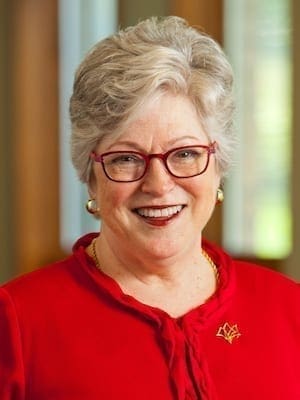I think I have been looking for the Cooperative Baptist Fellowship (CBF) all my life.
Little did First Baptist Church Muskogee know that allowing girls to carry the Bible in the Vacation Bible School procession might give them ideas about opening it – or consider that when we sang “Wherever He Leads I’ll Go” that I might think it meant girls, too.
So much has transpired over these 20 years, and I will look backward a bit – but mostly forward. I want to describe CBF in three movements.
First, CBF is a sanctuary for healing.
Some of us came to CBF rather beat up. We were tired of being called heretics, skunks, infidels, theologically bankrupt, etc. We needed a new spiritual home place.
We recognized the creeping creedalism for what it was – a dangerous threat to Baptist identity. We recognized that God would tend our battered hearts and set us to new horizons.
We recognized a future, with hope. We could be a new kind of Baptists. We could be healed enough to flourish again, but in a new and deeper stream.
Second, CBF is a new Baptist narrative.
During the spring of 1995 (after I had been thrown from the Southern Baptist Theological Seminary train, which had decided to travel on a narrow gauge into the past), I spent a great deal of my time speaking at state CBF meetings.
It was CBF that got me to Central as the seminary began to reach toward Baptists south of the ecclesial Mason-Dixon Line. I wondered if I could love that school as I had loved Southern. I could – if I would give myself to it and practice the Benedictine vow of stability and look forward rather than backward.
Twenty years of freedom and innovation have allowed us to tell a new story of grace and promise. No longer a denominational behemoth, Cooperative Baptists have learned that small and excellent can be used in the same sentence.
We have learned that vulnerability and even financial fragility are media preferred by God, who became small and dependent, too.
Third, CBF is a movement of the Spirit.
The greatest need of CBF persons today is to trust that God’s Spirit continues to guide and empower for ministry.
Discerning the movement of the Spirit remains a demanding spiritual practice, yet I have found these questions helpful in guiding the process. I pose them for us now, for we are at a critical inflection point in our history of how will we move forward together.
Is the pathway we sense the Spirit to be prompting a way to live the Gospel more fully?
CBF has been at its best when it has lived into the reality of being the presence of Christ – in Helena, in Thailand, in Prague, in Owsley County, in Slovakia, in Shawnee, Kansas.
CBF has matured in learning to go as well as send. Going as learners and friends – rather than as experts – has allowed sustainable relationships that are reciprocal and post-colonial.
Another question of discerning the Spirit is: Will this require more faith, more hope, more love?
Not only did the Fellowship want to find ways to do mission with greater humility, CBF also knew that our future required new forms of theological education.
It is a profoundly hopeful task to start new things and trust that God would prosper our work.
Are we persuaded that we cannot do this in our own strength? (The Spirit usually nudges us toward what will require radical dependence upon divine assistance.)
Holy work requires divine provision. William Carey’s famous “Expect great things from God; attempt great things for God” was inspired. He had the right order.
The Spirit nudges us toward horizons that move us beyond “confiding in our strength.”
We should stretch toward those goals that call us to do our best – yet requires the power of the Spirit to accomplish.
— Why not “water Malawi?”
— Why not make a 20-year commitment to the poorest counties?
— Why not be a voice for justice in immigration?
Will this pathway challenge old perceptions of how God is at work in the world? Is God up to something new?
Some of the places where the Spirit is nudging us seem rather clear:
— Issues of human sexuality – we must talk about how wonderfully and fearfully made humans are.
— Issues of gender – my heart rises as I hear daughters prophesying and renewing the church.
— Issues of interfaith learning and partnership – where else is the Spirit at work? Surely the Spirit is more than the “stealth weapon of the church.”
Will my community of faith grow in maturity by following this guidance of the Spirit?
Faith communities flourish by missional engagement. This action-reflection model is transformative, and it calls us to have “the mind of Christ” – thinking not just about our own things, but the things of others. We are called to follow his downward mobility.
Will redeeming expressions of grace and mercy flow from following this pathway?
How easy it is to forget that Jesus’ ministry was all about inclusion; unlike other religious leaders in his day, he practiced a “politics of compassion” rather than a “politics of holiness,” to use Marcus Borg’s insight.
Demonstrating grace and mercy mark us as true followers. We learn of God’s preferential option for the poor – those who know their need of grace and mercy. I want us to be known more for compassion.
Will this action be an authentic participation in the reign of God?
The Spirit continues to move, transgressing boundaries of human invention. The reign of God is gathering strength even now, even here.
Molly Marshall is president of Central Baptist Theological Seminary. This column is an excerpt from her speech at a 20th anniversary banquet during the CBF’s annual general assembly in Tampa, Fla.

